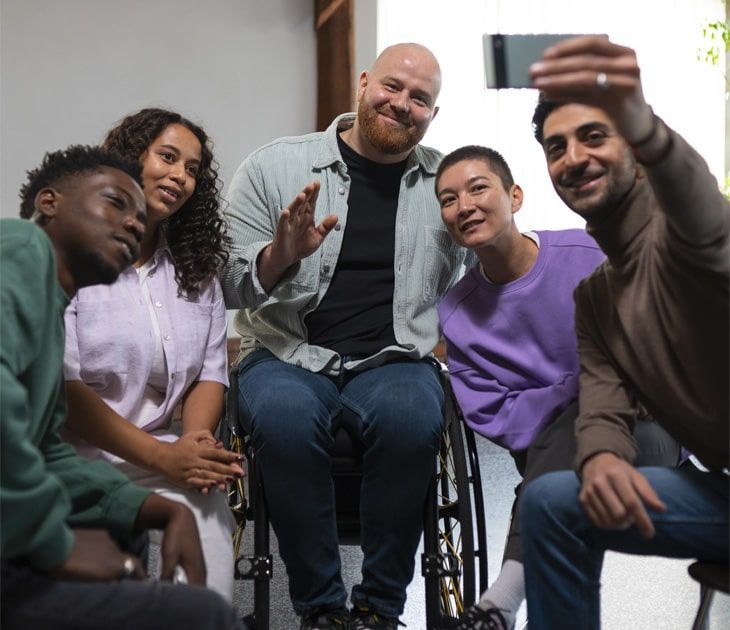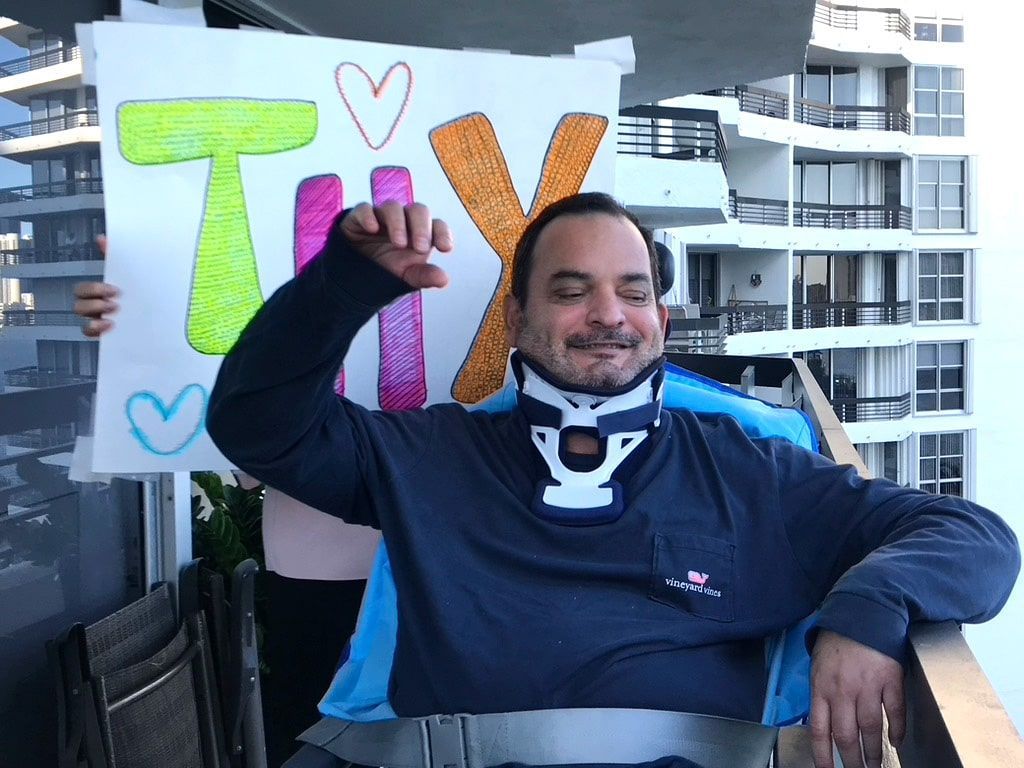Caregiver Information
Supporting Your Loved One
Dear Caregiver,
Thank you for the vital role you play in supporting those in your care. Your dedication and compassion are the foundations of their recovery and well-being. Your presence offers more than physical support; it provides emotional reassurance and hope. Remember to take care of yourself, seek support when needed, and know that you are not alone. Our community is here for you with resources and encouragement.
Understanding the Role of a Caregiver
Caregivers play a crucial role in supporting individuals with spinal cord injuries. They provide essential physical assistance, such as helping with mobility, daily activities, and medical needs. Equally important, caregivers offer emotional support, encouragement, and companionship, fostering a positive and nurturing environment for recovery.
Caregivers must also manage their well-being, seeking support and taking breaks to avoid burnout. Their dedication, patience, and compassion are vital to the well-being and recovery of those they care for, making their role invaluable and deeply appreciated.
Responsibilities
- Mobility Assistance: Help with transferring and moving.
- Daily Activities: Aid in bathing, dressing, grooming, and toileting.
- Medical Care: Administer medications and manage appointments.
- Emotional Support:
Provide companionship and encouragement.
- Household Management: Prepare meals, maintain cleanliness, and provide transportation.
- Advocacy: Communicate with healthcare providers and stay informed.
- Self-Care: Take breaks and seek support to avoid burnout.
Stages of Recovery
What to expect and how to assist
STAGE 1
Acute Stage:
What to Expect: Initial medical care, stabilization, and surgery.
How to Assist: Provide reassurance, assist with communication, and ensure comfort.
01
02
STAGE 2
Rehabilitation Stage
What to Expect: Intensive physical and occupational therapy.
How to Assist: Encourage participation in therapy, help with exercises, and provide emotional support.
STAGE 3
Early Recovery Stage
What to Expect: Continued therapy, adaptation to new routines, and home modifications.
How to Assist: Support daily activities, assist with home adaptations, and foster independence.
03
04
STAGE 4
Long-Term Recovery Stage
What to Expect: Maintenance therapy, lifestyle adjustments, and community reintegration.
How to Assist: Encourage ongoing therapy, support social activities, and monitor health.
By understanding these stages, caregivers can provide targeted support and encouragement throughout the recovery journey.
Foundation Services and Resources
Importance of Self-Care:
Strategies to maintain your own health and well-being.
- Take Breaks: Regularly schedule time for yourself to rest and recharge.
- Seek Support: Connect with support groups, friends, or counselors.
- Healthy Habits: Maintain a balanced diet, exercise regularly, and get enough sleep.
- Set Boundaries: Learn to say no and delegate tasks when needed.
- Mindfulness: Practice relaxation techniques like meditation or deep breathing.
Prioritizing self-care ensures you remain healthy and resilient, enabling you to provide the best care for your loved one.


Support Networks:
Finding and utilizing support groups and resources.
- Identify Resources: Research local and online support groups, healthcare resources, and community services.
- Join Support Groups: Connect with others who understand your experiences for emotional support and practical advice.
- Leverage Community Services: Utilize services like respite care, counseling, and caregiver education programs.
- Build a Network: Create a support system of friends, family, and professionals for comprehensive assistance.
- Stay Informed: Keep updated on new resources and support options available in your area.
Utilizing support networks can provide essential assistance, reduce stress, and improve your caregiving experience.
Angels Program
The Angels Program, a pillar of the Strength and Faith Foundation, is dedicated to providing invaluable support to spinal cord injury patients and their families. This unique initiative involves agreements with various universities and entities. As part of this program, professional students from diverse fields participate in an exchange program where they assist spinal cord injury patients and their families.
These students, while contributing to the well-being of the patients, also enhance their own learning experience by enrolling in English courses. This holistic approach ensures that the students grow academically and personally while providing essential support to those in need.
For a minimum duration of three months, the students live with the families of the spinal cord injury patients. During this time, they maintain a respectful and collaborative relationship, fostering a sense of community and mutual support. The Angels Program not only aims to offer practical assistance but also to build lasting bonds and understanding between the students and the families they assist.
Join us in this noble endeavor and become a part of a program that truly makes a difference in the lives of spinal cord injury patients and their families.
Stories from Other Caregivers





